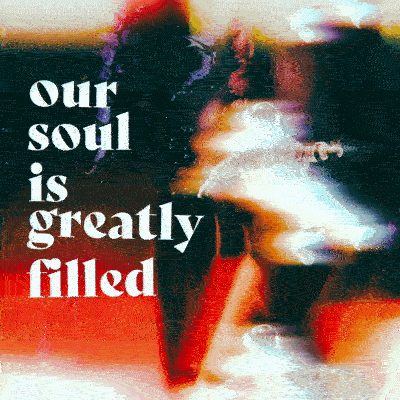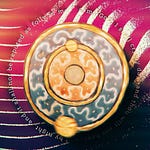For our soul is greatly filled: we are a reproach to the rich, and contempt to the proud. (Psalm 122:4 DR)
This short Psalm of Ascent comes to an abrupt close on a somewhat ambivalent note, following upon the previous passage in which the Church Militant suffers persecution from the world amidst its pilgrimage to its heavenly country. This “contempt” of the world is realized in the opposition of the world to the Church in respect to the ends in which each finds its happiness.
For the world, the pleasures and goods of this life are the source and end of all happiness, which encourages its denizens to strive after these things, with the concomitant chaos and destruction that ensues through striving after worldly wealth and power. For the Church, happiness can only be ultimately found in that heavenly country, in God Himself, and thus her members hold loosely to the things of this world.
The contempt comes from this conflict, for the world cannot simply allow those who dwell within this life to not accept its happiness or its understanding of the good. There is no “live and let live,” no “neutral space” in which one can “agree to disagree.” These systems are in mutual and categorical opposition, and no amount of tolerance can paper over the irreconcilable differences that exist under the surface.
The Psalmist reiterates and intensifies this reality, for not only is the Church “greatly filled” with contempt in a generic sense, but “our soul” is “greatly filled” with this same contempt. The same expression—multum repleta—is used here in the Vulgate, and this overflowing fullness is now attributed to the soul, which in a particular way means that this contempt is personal. The pilgrim Church collectively receives this contempt to the full, but also her members in their own souls, feeling the sting of the rejection and contempt of the world. This follows our Lord’s explanation of His mission:
Do not think that I came to send peace upon earth: I came not to send peace, but the sword. For I came to set a man at variance against his father, and the daughter against her mother, and the daughter in law against her mother in law. And a man's enemies shall be they of his own household. (Matthew 10:34-36 DR)
This sets in stark relief just how deep this opposition between the world and the Church goes, and how “greatly filled” with contempt one can be, for there is probably nothing more painful to the soul than to be rejected by or in opposition to the members of one’s own family. That the people who should have the most solicitude for you should become enemies on behalf of the world and its systems is one of the darkest things imaginable, yet sadly a reality throughout human history. The bitterness of this reality thus fleshes out how the soul can be “greatly filled:”
“For we are greatly filled with contempt.” However, in this passage he says it is the soul that is so filled, contempt being more applicable to the soul; for they who have no soul may be, and are, subject to pain, but not to contempt. The word “filled” signifies, in the Hebrew, filled to repletion, which adds great force to the expression; because if they who are filled to repletion, instead of deriving any pleasure from more food, are pained and overburdened by it, however rare and good it may be, how would the case be with those who may chance to be overdosed with bad food, such as contempt and reproaches. (St. Robert Bellarmine, A Commentary on the Book of the Psalms, 122, 4.)
This filling of the soul of the righteous is mirrored by the response of both the rich and the proud, the Church being a “reproach to the rich” and a “contempt to the proud.” Both expressions are expansions of how the soul is “greatly filled” with contempt.
The wealthy chase after the things of this world and presume to possess what they desire, even if in the natural course of events they are not materially wealthy. But they “fill” their souls with desires for material possessions, and this gorging of the appetites is itself a form of the soul being multum repleta—greatly filled. They choose to find their happiness in what this world can provide, in its luxuries and pleasures, and count themselves wealthy the more they possess and experience these things.
The proud puff themselves up and think more highly of themselves than they ought, imagining that the good they possess—whether in material things or in their own imagined righteousness—comes from themselves and their own efforts. They take what God created for good and twist it to serve their own ends and desires, and when deprived of these things—either by God’s chastisement or man’s machinations—they presume that injustice has been done when their desires are thwarted.
In this manner the rich and the proud in this passage refer to the same soul under different aspects, but each coalesces in the other in the soul that has this world and its happiness for its end. In this state they reject out of hand the source of true happiness:
Why are the proud wealthy? Because they wish to be happy here. Why? Since they themselves too are miserable, are they wealthy? But perhaps when they are miserable, they do not mock us. Listen, my beloved. Then perchance they mock when they are happy, when they boast themselves in the pomp of their riches! When they boast themselves in the inflated state of false honours: then they mock us, and seem to say, Behold, it is well with me: I enjoy the good things before me: let those who promise what they cannot show depart from me: what I see, I hold; what I see, I enjoy; may I fare well in this life. (St. Augustine, Expositions on the Psalms, 122, 6.)
Yet even when the proud do not obtain what they desire they still are “wealthy,” for while they may not have material possessions, they still have that inflated interior disposition of which Milton put on the lips of Satan following his fall:
Farewel happy Fields
Where Joy for ever dwells: Hail horrours, hail
Infernal world, and thou profoundest Hell
Receive thy new Possessor: One who brings
A mind not to be chang’d by Place or Time.
The mind is its own place, and in it self
Can make a Heav’n of Hell, a Hell of Heav’n.
What matter where, if I be still the same,
And what I should be, all but less then he
Whom Thunder hath made greater? Here at least
We shall be free; th’ Almighty hath not built
Here for his envy, will not drive us hence:
Here we may reign secure, and in my choyce
To reign is worth ambition though in Hell:
Better to reign in Hell, then serve in Heav’n.
(Milton, Paradise Lost, Book I, Lines 228-242.)
It would be difficult to imagine a soul more “greatly filled” by its own pride than such as was just expressed, and this fulness of pride is the mirror of the contempt with which the just are filled. But while the just receive that contempt external to themselves, the man who is rich in pride fills himself interiorly with his own desires, and in doing so lays up contempt for himself on the day of judgment.
The righteous thus become a reproach to the rich and contempt to the proud, for the Church stands as a sign of contradiction to the way of the world, and as was seen in the previous passage, this is something the world cannot abide. As deadened as the pleasures of this world attempt to make the conscience, the presence of the Church in the world as that sign of contradiction is a sting to the conscience of the proud. For they see in the Church those who willingly give up what the proud and wealthy desire so ardently, which calls into question the happiness that can be had from the things of this world. Such a reminder of the temporal and fading joy of this life is not something the world will bear lightly. But in the end this reproach and contempt will be turned back upon their heads:
Then shall the just stand with great constancy against those that have afflicted them, and taken away their labours. These seeing it, shall be troubled with terrible fear, and shall be amazed at the suddenness of their unexpected salvation. Saying within themselves, repenting, and groaning for anguish of spirit: These are they, whom we had some time in derision, and for a parable of reproach. We fools esteemed their life madness, and their end without honour. Behold how they are numbered among the children of God, and their lot is among the saints. Therefore we have erred from the way of truth, and the light of justice hath not shined unto us, and the sun of understanding hath not risen upon us. We wearied ourselves in the way of iniquity and destruction, and have walked through hard ways, but the way of the Lord we have not known. (Wisdom 5:1-7 DR)
As the Church winds her way on this pilgrimage to the heavenly city, lifting her eyes in this vale of tears to her true home, her members must call to mind that their eyes must be fixed on Him “Who dwelleth in heaven,” that God is the source of all happiness and the end for which we all long. The riches and pride of this world are fleeting and illusory, and will one day give way to true wealth:
Those riches are then not riches, but beggary; for the more they abound, the more does destitution and avarice increase... Let then our whole hunger, our whole thirst, be for true riches, and true health, and true righteousness. What are true riches? That heavenly abode in Jerusalem. For who is called rich on this earth? When a rich man is praised, what is meant? He is very rich: nothing is wanting to him. That surely is the praise of him that praises the other: for it is not this, when it is said, He wants nothing. Consider if he really want nothing. If he desires nothing, he wants nothing: but if he still desires more than what he has, his riches have increased in such wise, that his wants have increased also. But in that City there will be true riches, because there will be nothing wanting to us there; for we shall not be in need of anything, and there will be true health. (St. Augustine, Expositions on the Psalms, 122, 6.)
The scorn and contempt of this world for the Church and her members is likewise fleeting like a passing shadow, and the vindication of the Lord on the last Day will bring all things right, as those who hoped in His salvation will at last be “greatly filled”—multum repleta—not with contempt, but with joy forever:
For the hope of the wicked is as dust, which is blown away with the wind, and as a thin froth which is dispersed by the storm: and a smoke that is scattered abroad by the wind: and as the remembrance of a guest of one day that passeth by. But the just shall live for evermore: and their reward is with the Lord, and the care of them with the most High. Therefore shall they receive a kingdom of glory, and a crown of beauty at the hand of the Lord: for with his right hand he will cover them, and with his holy arm he will defend them. (Wisdom 5:15-17 DR)
This animation came about mostly because I had seen this astronaut image and wanted to use it. I also thought that floating aimlessly served as a good image of being filled with reproaches and contempt.
I isolated the image in Photoshop and precomped in After Effects. I then used Motion Tile to duplicate and animate the motion of the figure. The background is some abstract textures with LoopFlow applied to them and offset and blended together.
Enjoy.
For our soul is greatly filled: we are a reproach to the rich, and contempt to the proud.
(Psalm 122:4 DR)
View a higher quality version of this gif here:










